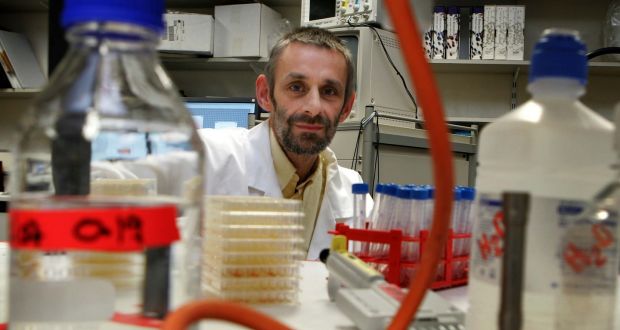Kingston Mills, Trinity’s professor of experimental immunology, has been awarded the 2020 Provost’s Innovation Award.
The prize is presented as a part of the Trinity Innovation Awards, which includes a number of other categories. This is the fourth year the awards have been in existence.
The winners of this year’s Founders Award, which is presented to academics who have founded campus companies with high potential were Prof Alijosa Smolic, Dr Michael Southern, Prof Vincent Kelly, Prof Steve Connan and Prof Julie Kelly.
The Industry Engagement Award, which recognises the achievement of researchers or research teams in establishing links with industry, was presented to Dr Frederick Sheedy, Prof Danny Kelly, Prof Maeve Lowry and Dr Francoi Pitie.
Dr Sarah Doyle, Dr John Dinsmore, Prof Marco Ruffini, Dr Rocco Lupoi and Dr Rebecca Usherwood were recognised as “ones to watch” – a category of academics whose research is most likely to result in industry engagement, a campus company or a commercial licence deal.
Those recognised in the Investors category, consisting of academics whose research has led to the creation of intellectual property licensed to industry or the creation of campus companies, were Prof Vincent Kelly, Prof Matthew Campbell, Prof Bruce Murphy, Dr Conor McGinn and Prof Marco Ruffini.
Prof Pete Humphries was awarded the Lifetime Achievement Award, which recognises an academic who has contributed significantly to collaboration between academia and industry.
Speaking at the virtual awards ceremony this evening, Provost Patrick Prendergast said: “This past year, of course, has been unlike any other. Some research projects have been delayed through the closure of laboratories.”
“But Trinity Research & Innovation have been front and foremost, through the contribution of our professors to the national discourse on topics ranging from health to wellbeing to economic impact, as well of course as in the search for cures and vaccines.”
“Trinity’s innovation output is driven by a deep research pipeline, underpinned by 19 research themes distributed across 24 schools, five major Trinity research institutes and three SFI centres, spanning nanoscience to neuroscience, digital humanities to creative technologies and immunology to oncology”, he added.
“If Trinity is a high global performer in innovation, that’s because of the excellence of our academics and researchers. So it’s right that we created these awards to acknowledge and recognise them”, Prendergast concluded.







